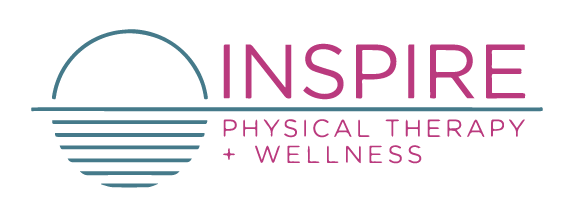To build ideal physical health, you’ll need to focus on five fundamental elements. Start with balanced nutrition and proper hydration to fuel your body. Incorporate regular physical activity and exercise to maintain strength and cardiovascular fitness. Prioritize quality sleep and recovery for cellular repair. Practice effective stress management techniques to regulate your hormones. Ultimately, improve your environmental health through conscious lifestyle choices. Understanding these elements in detail will elevate your path to peak wellness.
Key Takeaways
- Balanced nutrition provides essential nutrients through whole foods while maintaining appropriate caloric intake for daily energy needs.
- Regular physical activity combining 150 minutes of cardio and 2-3 strength training sessions weekly builds fitness and strength.
- Quality sleep of 7-9 hours in optimal conditions enables bodily restoration and muscle recovery.
- Stress management through mindfulness and relaxation techniques supports mental wellness and physical health maintenance.
- Clean environment and proper hydration with 2.7-3.7 liters of water daily promotes overall physiological function.
Balanced Nutrition and Hydration

Three fundamental principles govern balanced nutrition and hydration: caloric equilibrium, nutrient density, and adequate fluid intake. You’ll achieve caloric equilibrium when you match your energy intake with your daily expenditure, preventing unwanted weight fluctuations. To enhance nutrient density, focus on whole foods rich in vitamins, minerals, and antioxidants while minimizing processed alternatives.
Your hydration sources should primarily come from water, contributing to the recommended 2.7-3.7 liters daily intake. You can supplement with electrolyte-rich beverages during intense physical activity. Monitor your hydration status through urine color; pale yellow indicates ideal hydration. Keep in mind that different factors affect your needs, including climate, exercise intensity, and body composition. Track your food and fluid intake using digital tools to guarantee you’re meeting these requirements consistently.
Regular Physical Activity and Exercise

Regular physical activity forms the cornerstone of ideal health, encompassing both structured exercise and daily movement patterns. You’ll need to engage in at least 150 minutes of moderate-intensity cardio routines weekly, combined with strength training sessions targeting major muscle groups 2-3 times per week.
Your exercise program should incorporate both aerobic activities, such as brisk walking, cycling, or swimming, and resistance exercises using weights, bands, or body weight. Scientific research demonstrates that this combination optimizes cardiovascular health, maintains muscle mass, and improves metabolic function. You’ll achieve maximum benefits by progressing gradually and maintaining proper form during exercises. Track your heart rate, maintain workout logs, and adjust intensity levels based on your fitness goals and physical capabilities.
Quality Sleep and Recovery

While physical activity challenges your body, adequate sleep allows for essential restoration and adaptation processes to occur. Your sleep hygiene practices directly impact your physical health, cognitive function, and hormonal balance. Following consistent sleep patterns and implementing recovery techniques improve your body’s natural healing mechanisms.
- Maintain a dark, quiet, and cool bedroom environment (60-67°F), limiting exposure to blue light from electronic devices at least 90 minutes before bedtime
- Practice progressive muscle relaxation, deep breathing exercises, or meditation to activate your parasympathetic nervous system
- Utilize active recovery techniques on rest days, such as gentle stretching, foam rolling, or low-intensity movement, to promote blood flow and reduce muscle tension
You’ll optimize your physical performance and general well-being by prioritizing quality sleep and implementing strategic recovery methods.
Stress Management and Mental Wellness
Mental well-being directly influences physical health through complex psychophysiological pathways, including neuroendocrine responses and immune system function. When you’re chronically stressed, your body releases cortisol and other stress hormones that can lead to inflammation, weakened immunity, and cardiovascular strain.
You’ll build emotional resilience by implementing effective stress management techniques. Mindfulness practices, such as meditation and deep breathing exercises, activate your parasympathetic nervous system, reducing blood pressure and heart rate. Studies show that regular mindfulness practice can decrease anxiety, improve sleep quality, and boost cognitive function.
To optimize your stress response, combine these techniques with regular physical activity, social connection, and time management strategies. You’ll notice improved mood regulation, better disease resistance, and enhanced general physical performance when you prioritize your mental wellness.
Environmental Health and Lifestyle Habits
Your physical well-being extends beyond internal factors to encompass the environments you inhabit and the daily choices you make. Research shows that sustainable living practices and pollution control measures directly impact your health outcomes. You’ll find that environmental factors influence everything from respiratory function to cellular regeneration.
- Minimize exposure to environmental toxins by using air purifiers, water filters, and eco-friendly household products that support both personal health and community resources
- Engage with local health equity initiatives to improve access to green spaces, farmers markets, and recreational facilities in your neighborhood
- Create health-promoting spaces at home and work through proper ventilation, natural lighting, and ergonomic design that aligns with evidence-based wellness principles
These environmental interventions, combined with conscious lifestyle choices, create a foundation for ideal physical health and longevity.
Frequently Asked Questions
How Do Genetics Influence Our Ability to Build and Maintain Physical Health?
Your genetic predisposition greatly impacts your physical health potential. Hereditary factors influence everything from your metabolism and muscle composition to disease susceptibility and recovery ability. You’ll find that your genes affect how efficiently you build muscle, burn fat, and respond to exercise. However, you’re not solely bound by genetics – environmental factors, lifestyle choices, and epigenetics can help you optimize your health despite genetic limitations.
Can Supplements Effectively Replace Natural Sources of Nutrients for Physical Health?
While supplements can provide specific nutrients, they can’t fully replicate the complex interactions found in whole foods. Research shows that your body typically absorbs natural nutrients more effectively than synthetic alternatives. Supplement efficacy varies greatly, and many lack proper regulation or testing. You’ll get better results by prioritizing a balanced diet rich in natural nutrients, using supplements only to address specific deficiencies under healthcare provider guidance.
What Role Does Age Play in Adapting to New Physical Health Routines?
Your body’s maturity adaptations greatly influence how quickly you can adjust to new health routines. As you grow older, you’ll need more recovery time between workouts and greater routine flexibility. Research shows that adults over 50 typically require 48-72 hours to adapt to new exercise patterns, compared to 24-48 hours for younger adults. You’ll also need to modify intensity levels and incorporate longer warm-up periods to accommodate age-related changes in muscle elasticity and joint mobility.
How Do Social Connections Impact Overall Physical Health and Wellness?
Your social connections greatly influence your physical well-being through multiple scientifically proven pathways. Strong social support networks reduce stress hormones, lower blood pressure, and enhance immune function. Community engagement increases physical activity levels and promotes healthier lifestyle choices. You’ll experience better recovery from illness when surrounded by supportive relationships, and you’re more likely to maintain consistent health practices when part of a connected social network.
What Are the Effects of Intermittent Fasting on Long-Term Physical Health?
Intermittent fasting offers several long-term effects on your health, including improved insulin sensitivity and cellular repair through autophagy. You’ll experience potential benefits like weight management, reduced inflammation, and better heart health when practicing sustained fasting patterns. Research shows it can improve brain function and potentially increase longevity. However, you’ll need to maintain consistent fasting schedules and consult your healthcare provider to confirm it’s appropriate for your specific health conditions.





